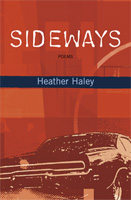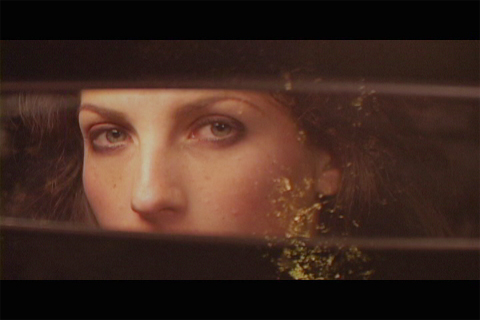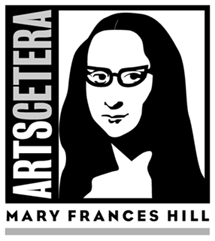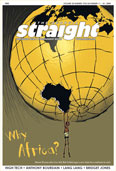
Limpid Celluloid On Offer
By Ken Eisner
Publish Date: 10-Nov-2004
Get over your postelection stress disorder (or at least pretend to) tonight (November 11), at 7:30 p.m. at the Pacific Cinémathèque, with a night of poetry made manifest, in See the Voice: An Evening of Visible Verse.
The program, put together by poet and musician Heather Haley, consists of 15 shorts and at least two live performances, includes Sheri-D Wilson's "Spinsters Hanging in the Trees", Leanne Auerbach's "Car Wash", and "Almost Forgot My Bones", from Katrin Bowen and Tanya Evanson.

See Video Poetry
Burnaby Now newspaper
Susan Cormier of Burnaby will be highlighted at an evening of experimental art at the Pacific Cinémathèque Theatre on Thursday, Nov. 11.
See The Voice: An Evening of Visible Verse will combine film, video poetry and live performances.
Cormier, who will present a six-minute video poem, The Bleeding Place, is described on the website www.latchkey.net as a Métis artist who writes with "experience, hard earned wisdom and a bright, graceful defiance against the odds. There is a subtle rage here, but it is definitely not blind."
The evening features 16 different videopoems and two live performances for a single ticket price of $8.50. Pacific Cinémathèque is located at 1131 Howe St., Vancouver and tickets are available at the door or through 604-688-3456 (FILM).
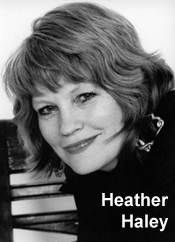
Heather's poem "Uranium Town," from "Sideways," featured in BC Bookworld.
Uranium Town - from Sideways (Anvil $14) 1-895636-54-X |
Celebrating "Sideways" Book Launch
Reviewed by Lyle Neff
"Hey, up there!" shouted two pale, tattooed women from the seaside pavement at the foot of Gore Street. "Hi! What's happening?" a man yelled back, from five floors up on the roof of the Railway Studios. The taller woman shouted, "Our friend has bright pink hair! Is she up there?" Minutes passed before the guy came back: "Yeah, she's here!" More time passed. The shorter woman lit a cigarette. Then, from the rooftop: "Did you wanna *talk to her?!" That's how Heather Haley's rooftop book launch party began. *Sideways,* her first collection of poetry from the East End irregulars at Anvil Press, came in a jacket with an arted-up muscle car on it. The poet's son thought it pretty hot stuff; at age 8, young Lucas ran the door ($5 cover, please) and the book table, applying muscle when necessary. He did his mum proud, being about the coolest grade 4 kid anywhere. Some other Haley relatives pitched in as well; to access the elevator inside the Studios building, you had to be hostessed in by the poet's niece Katherine and her friend Jayme, a pair of cute teenagers. Haley herself, a 40ish redhead in towering stilettos and a multi-coloured shawl, was delighted by the weather, and by the spectacle of the sun going down behind the Lion's Gate as her party got rolling. "It feels like the first day of summer," she said, before getting to work in the airy glass box of the penthouse, where, beside a dusty-looking weight room, Anvil Press had set up the proverbial two turntables and a microphone. Plus a TV set. For Heather Haley is not quite your usual poet. She is descended on her mother's side from 10-time Stanley Cup winner "Gentleman" Jean Beliveau, and she's a rock-n-roller, having fronted the Î80s all-girl power-pop outfit the Zellots. She returned to Canada from a stint in America, after the blood-soaked '92 riots there. In the past decade she's been "a Web author and media |
poet," founding the sprawling website *edgewisecafe.org *, and championing videoconferenced "TelePoetics" reading events, among other literary forms whose time never seems fully to arrive. *Sideways* is her first full-length work in the traditional "slim volume" format, and as her reading showed, it's a supple and unusual book. One of Haley's themes is the high price we eagerly pay for technological advances. She locates this idea where it really belongs, which is not in the malleable, debatable imagery of cyberspace, but in the mundanely high-impact world of automobiles. That's where, Haley writes, we really pay the price for our cool machines. "I crept through brambles ,"whispers the car-crash survivor in *Dying for the Pleasure,* who both hates and loves the "high maintenance metal Venus" that's brought her to the "hands of the Reaper." Some time after the reading, Haley's comrades fired up the TV to show the "videopoem" short film based on this text. It was suitably hair-raising. In between times, and late into the night, DJ Rodux made use of the turntable setup to emit some form of elaborate ambient disco, or jazz or something. It went over well with a birthday party being held concurrently by Railway Studios denizens; the literary crowd blurred into the Railway one, helped along by Anvil's generously disorganized cash bar. The Studios building, of course, is among the tax-break-zoned artist live-work complexes now pressing at the margins of the malnourished Downtown Eastside. Heather Haley's book launch proved a good opportunity to rise above grotty urban politics, though: five floors above, to be exact. The woman with bright pink hair held her baby daughter in her arms, and showed her the evening stars emerging over Indian Arm. |
Potent Poetry
Visible Verse: Haley's Dying For The Pleasure sets standard in videopoetry
by Alex
Browne
Arts Reporter
I love you, - Heather Haley Thursday, March 06, 2003 @ the Pacific Cinematheque Writer, editor, web author, media poet and musician Heather Haley has an umbrella title under which she markets her latest output: By Any Medium Necessary. It's an apt summary of her approach --- which can range from the traditional (her forthcoming collecting of poetry Sideways , published by Anvil Press) to cutting edge use of media (her video-poem collaboration with acclaimed director Katrin Bowen, Dying For The Pleasure). The latter, a 10-minute adaptation of one of Haley's poems, will receive what Haley terms "a post-wrap screening" Thursday at Pacific Cinematheque, on a program that will include readings and other screenings by Haley, Bowen, Alice Tepexcuintle, Doug Knott, R.J. Tuna, Dena Ashbaugh . "I'm fearless when it comes to media," Haley, founder of the Edgewise ElectroLit Centre and the Vancouver Videopoem Festival, said. "I'm not adverse to video or print or the web. It's all good.. Funded by a Canada Council grant, Dying For The Pleasure is in the latter stages of post production --- being readied for entry into a number of festivals, including such prestigious venues as Cannes and Sundance. Haley wrote the grant proposal last May, received the grant in August, and the project was shot on digital video in South Surrey over two nights in November. Quite stunning to look at, thanks to the fine direction of Bowen and excellent lighting by director of photography Ryan Tunnicliffe, it's a powerful study of a woman's love-hate relationship with automobiles --- her dread of dying in a crash counterbalanced by her undeniable infatuation with cars, speed and car culture. The combination of heady visuals and potent poetic text is a strong statement in a time when we are confronted daily by the tragic costs of our love affair with the automobile. And Haley writes of something she knows all too well. Raised in Cloverdale, she broke her arm in a card wreck on one of South Surrey's backroads while still a teenager --- and several years ago survived a horrific car crash on Highway 91. (Her young son Lucas, with her in the vehicle at the time, was also lucky. He was happily bouncing around the house as we spoke the other day.) The video, shot on a long, treed driveway on a friend's farm ("It meant that we didn't have to get permits to shoot on a road"), similarly traces the experience of the protagonist, played by Dena Ashbaugh, from her teen years to soccer mom. |
Bowen's setups effectively, and economically, create the ambience Haley described in her project proposal: "at the intersection of flesh and metal, beyond road rage and auto-eroticism.. And the theme, as she said, is "particularly timely, with Vancouver's streets terrorized by young racers crashing their fancy fast cars at incredibly high speeds, but automobile accidents have long been the single greatest cause of death to people aged 16 to 24. Dying For The Pleasure is her first venture into a production based on her work and Haley, though championing videopoetry, admits the process was not easy for her. "It was quite vexing at times --- to convince somebody to shoot what I envisioned," she said. And yet, she thoroughly enjoyed it. "I was excited about collaboration," she said. "I'm a musician too (she's a former member of the .45s and the all-girl band The Zealots) and missed that way of working. Writing can be a very lonely business. Haley regards herself particularly lucky in securing the talents of Bowen, an award winning film director with a colourful past. "She's a big, tall, Amazon of a woman who grew up in a Mennonite community in Alberta, then went to Hollywood and appeared in all these B movies as an Amazon woman. . Haley also saluted the dedication of the professional crew, who spent two freezing nights bringing her vision to life. She said Ashbaugh did a great job as the principal character --- believable both as a teen and a mom. "I pushed for Dena. I had to convince the director she was right."I thought she was the most talented of the people we auditioned. She was genuine. I didn't care whether somebody was blonde or brunette. I had to have somebody I could believe in. And Katrin was great in working with the actors. The decision to shoot in digital video was a conscious choice by Haley and Bowen, not simply driven by economic factors. "Video's populist nature appeals to me," Haley said. "I want to make a statement, that expression through moving images is not impossible or out of reach for struggling artists and poets."As I said in my project proposal, I am drawn to video because it lends itself to hybridization, and the history of experimentation is a fundamental aspect of the medium."Sans the cynicism and uber-commercialism of a rock video, a videopoem is employed to enhance the word and stars the poem, not the poet. Haley also believes videopoetry has the power to dispel misconceptions of what poetry must be, and the notion that it is tedious, conservative and irrelevant. She also sees it as a great way of introducing young people to the form and she and Bowen plan to teach a videopoetry workshop at Crescent Park Elementary this April. "Now I'm hankering to get back to my book --- I'm working on a novel. I finished one which is with an agent in London, and I'm getting my poetry manuscript ready for Anvil Press. But Haley looks forward to making other videopoems, she said. "There are things missing I really wanted, but overall, I'm really pleased with it. In some ways it turned out better than I thought." |
'Media poet' Heather Haley weds words with images
by Mary Frances Hill
Heather Haley's everywhere, and I don't mean this in an ebullient, figurative sense, like 'Oh my god, you haven't seen her? She's everywhere'. Haley, the founder of the Edgewise ElectroLit Centre, is using every medium to spread her words. She's online (a Googling came up with 388 references --- not bad for a poet); she's on screen with Dying for the Pleasure, directed by Katrin Bowen, to be screened Thursday (March 6) at Visible Verse at Pacific Cinematheque; and she's on paper, with the publication of Sideways , her first volume of poetry, released next month by Anvil Press .Visible Verse also includes an evening of screenings and readings from the likes of RJ Tuna, Dena Ashbaugh, Alice Tepexcuintle, Doug Knott and Bowen herself. Haley's not what she calls a "page baby" --- those purists who believe poetry and fiction is not valid unless it's found in books and collections. |
"Pshaw to all that."I call myself a media poet, because I'm not averse to employing any kind of media to show my art". In the 10-minute film which Bowen and Haley want to premiere at Cannes and Sundance, Haley's voice-over accompanies the live-action story of a woman's anxiety and uneasy embrace of car culture, and her transformation into a cyborg of sorts as she enters the metal auto cocoon. The very difficult art of the videopoem involves getting the audience involved in the message and words, and in the live-action on screen, without allowing one to distract from the other.At its best, the videopoem is a happy, balanced integration, a "wedding of word and image", she says. Videopoetry is still in its pioneer stages. There's no conventions, no rules. "It's such a burgeoning form in its embryonic stage, so everyone has different ideas about it." |
Visible Verse starts at 7:30 p.m. at 1131 Howe; seven bucks gets you in.
Videos Put Poetry in Motion
Canada's only videopoem festival gives art form a higher profile
by Claire Sykes
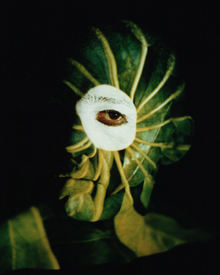
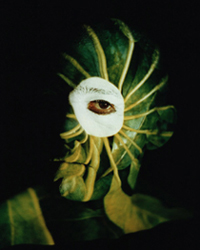
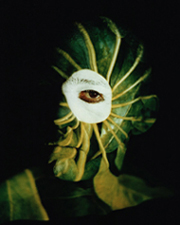
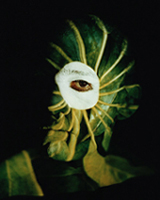
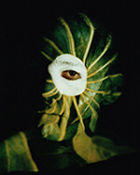
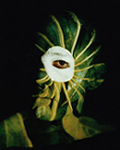
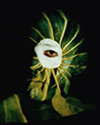


The word is out. Poetry has leapt off the page, stepped off the stage, and landed on the screens of televisions and computers. The literary art form has made it to video. But it's not as if videopoems haven't been around for a while. It's just that they're finally gaining a higher profile. Since the mid-'70s, with the advent of portable and financially accessible video equipment, poets have been filming interpretations of their work--everything from straight-shot recitations to MTV-like presentations to experimental film explorations. You'll get to see some of the latest of these creations at the Vancouver Videopoem Festival which takes place next Thursday to Saturday (November 2 to 40 at the pacific Cinematheque and the Cineworks Independent Filmmakers Society offices (1131 Howe Street.) For two nights, 33 videopoems from across Canada and the U.S. and one from Lima, Peru--will be screened. There will also be readings, a hands-on workshop exploring how to make videopoems, a panel discussion and an awards gala. The only event of its kind in Canada, the festival is presented by the Edgewise ElectroLit Centre in partnership with Pacific Cinematheque, a nonprofit Vancouver organization devoted to making poetry accessible through electronic media including an e-zine, videoconferenced readings and virtual writing workshops. Also called poetry video, poetry film or cine-poetry, videopoems combine spoken or projected text with imagery and music in an integrated, symbiotic union via camera computer. "The variety of treatments is as diverse as the poets and their individual lexicons,' says Edgewise's founder and Executive Director, Heather Haley. "It's wonderful, evocative work." While Winnipeg ideograph Erika MacPherson uses Margaret Atwood's "This is a Photograph of Me", the rest of the videopoems at this year's festival feature original work, from the accessible to the arcane. In "I Call the Moon My Mother," Chicago poet Gerard Wozek mediates on the mysterious powers of the moon as a universal symbol of the goddess and of motherhood. His soothing voice-over ("She is Brid, Diana/Morrigan, and Lavanah. /She is Isis and Persephone, /Ceres, and Cyble" and then, "She is a pool of madness. /She is the essence of dreaming."/ works beautifully with Mary Russell's and Mike Kelly's gently, cross-fades computer -graphic images of the moon and archetypal goddess face. Interviewed by phone, Wozek says of his collaboration:" We wanted something that people could embrace instantly and fall into very easily, through the rhythm and pattern of the words. Especially with poetry videos, with the eye and ear both engaged, if the words are so esoteric, and you're struggling to make sense of their meaning, you're losing a lot." You'd better not even blink during Adeena Karasick's "Mumbai Ya." The New York poet and performance artist-a former Vancouver resident-investigates the intersection, co-opting and appropriation of contemporary cultures, mixing the serious with the absurd in a rapid collage of colourful and surreal images, faux-Indian music, and made-up language ("So, dose my sari ass/in a drugged out tout pickin' moby dhobi sadhu babhou/bibbly bop wallah"). "People who are experimenting with this hybrid are in the learning stage, because there's no standard for videopoems. |
Relatively speaking, they haven't been around that long, " says Haley. New York notables Bob Holman, Anne Waldman and Allen Ginsberg, as part of the Manhattan Poetry Video Project, and Vancouver poet Tom Konyves, made the first videopoems. This history will be addressed during an open-forum panel with media poets Kurt Heintz of Chicago and Jill Battson of Toronto (producer of the popular "Word Up" series of poetry videos), both also workshop leaders; Alma Lee, Artistic Director of the Vancouver International Writers Festival; Vancouver poet and author Michael Turner; and Ian Moor, director of San Francisco's Cine (E) Poetry Festival. The panel will also discuss the definition and aesthetics of videeopoems, and their effect on other disciplines and on audiences. In the end, the writing must have literary merit. Says Haley, "The word and the voice are the most important aspects, the performance." Videopoems lend themselves to performance poetry-one of the roots of the genre, which explains the festival's live readings (by Karasick, Gabriola Island's Hilary Peach, and Montreal's Ian Ferrier). "A videopoem should also be interesting to watch without the sound," adds Heintz, on the phone from his home. "Images speak on the same level as language, and are no more or less valid." By the same token, words have visual power, "so to advance them through a medium like film or video makes a lot of sense, since it offers the strongest visual impact of the words," continues Haley. Where there's a unity of words and images (stills, animation, documentary clips, computer graphics, or the poet him-or herself), "you experience the visuals as not only the graphic servant of the language, but also an ongoing, moving metaphor of the poem. That's a magical act and it's what can be so entrancing about the genre," says Kedrick James, festival MC, poet, video producer and director of Vancouver's Pointless Hysteria Productions, which runs a gallery and multi-use space devoted to exploring science, art and technology. Add music or other sound, and you get a lingual, visual and aural camaraderie that lives as a fresh alternative to reading or reciting poetry. Why should poems be confined to academic quarterlies, classrooms and cafes? Poetry can and should embrace all media, with videopoems a part of the entire spectrum of possibilities. "Poets are tired of shouting to be heard from the fringe," says Haley, and videopoems are an effective means for language arts to take centre stage." But why is the Vancouver Videopoem Festival the only one in Canada? For one thing, relatively few videopoems are being produced in this country," says Haley, who lived in Los Angeles for 12 years while covering the LA Weekly's spoken word- beat:" I saw much more cross-pollination of disciplines and genres in the States. It seems we're more hung up on arbitrary distinctions in Canada" The medium is growing here, however, as it is in the U.S., Europe and Australia. Thanks to the camcorder and the computer, poetry videos are more practical and less expensive to produce than ever before. We're already saturated with movies, TV shows, Web sites, DC-ROMS, computer-generated signage and other videos; make room for videopoems. "They're something the public is ready for," says Heintz. "There's definitely some potential to open people's minds with it." |
         |
The festival kicks off with the See The Voice workshop at 7:30 p.m. next Thursday, (November 2) at Cineworks. (The $10 admission charge includes membership in the Edgewise ElectroLit Centre and pre-registration is required.)
Screenings are next Friday and Saturday (November 3 and 4) at 8 p.m. at the Pacific Cinemathque ($5 each night), and the two-hour panel discussion is next Saturday at 4 p. m. ($5).
The fundraising awards gala (by donation) will be held at the Holiday Inn Vancouver Downtown after the Saturday night screenings. For more information, phone the Edgewise ElectroLit Centre at 535-6514.


